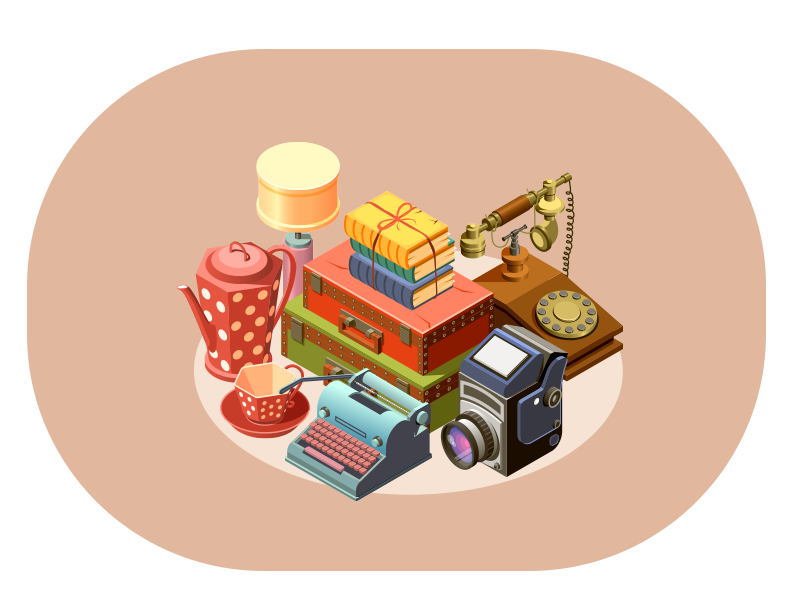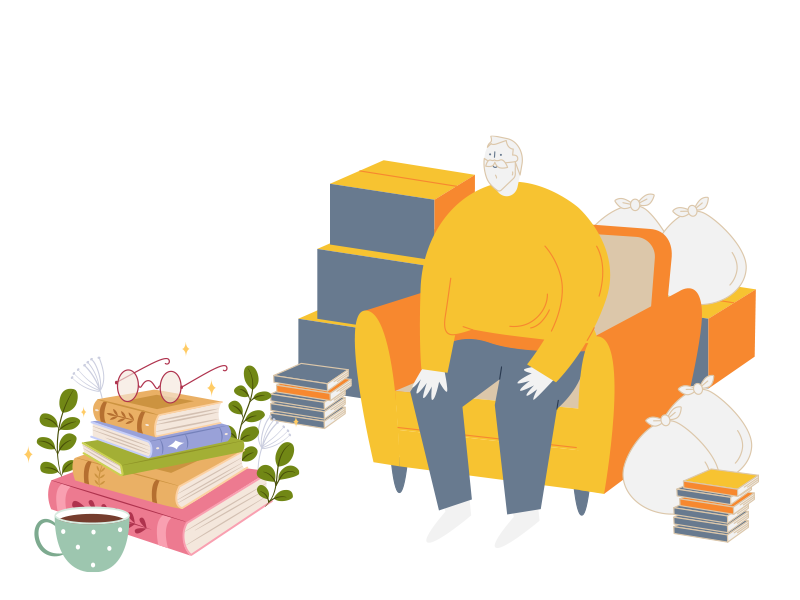What is Hoarding and What Can You Do About it?
What is Hoarding?
More than just a subject of fascination on recent popular TV shows, hoarding is a disorder where a person finds extreme difficulty in throwing away or parting with certain items that others may view as having little or no worth. This excessive saving of items often leads to extreme accumulation of clutter that make living quarters hard or impossible to navigate, and in extreme cases, will also lead to unsanitary conditions that can cause health issues to anybody living in that space. While it may appear to friends and family to simply be an accumulation of junk, it’s important to recognize that a hoarder has a sentimental attachment to each item that they’re holding onto.
Do you or someone you know have a hoarding disorder?
People who are collectors or who are disorganized or messy are not hoarders. Compulsive hoarders have a psychiatric disorder and their lives are often inhibited or defined by the conditions that have been created by their hoarding. According to the Anxiety and Depression Association of America, hoarders may exhibit the following behaviors:
- Inability to throw away possessions
- Severe anxiety when attempting to discard items
- Great difficulty categorizing or organizing possessions
- Indecision about what to keep or where to put things
- Distress, such as feeling overwhelmed or embarrassed by possessions
- Suspicion of other people touching items
- Obsessive thoughts and actions: fear of running out of an item or of needing it in the future; checking the trash for accidentally discarded objects
- Functional impairments, including loss of living space, social isolation, family or marital discord, financial difficulties, health hazards
What can you do about hoarding?
Begin the conversation
If you’re trying to help a loved one address a hoarding problem, start by having a calm conversation. This may take many attempts, as it may be difficult for them to admit they have a problem. Ask questions, and then listen – even if you disagree. Do your best to show empathy, understanding, and non-judgment. Propose several options for next steps in order to allow them some control of the situation.
Enlist the help of a professional
If someone you know is a true hoarder, you may need to bring in the support of a professional who can address both the clutter at hand and the mental and emotional distress that typically accompanies it. You don’t need to address this on your own; cleaning out a hoarder’s house will likely be easier with the assistance of an outside expert. A third party can bring an impartial, balanced perspective, and will also provide the expertise of how to organize what can seem like a very overwhelming task. Some hoarders may be in need of additional therapy or counseling, and hoarding experts can help refer them to trusted professionals who specialize in this area.
Don’t clean for them
While you may take on a role in helping your loved one sort through their belongings, if you decide to go through his or her belongings without permission, the situation may become worse. Regardless of how good your intentions may be, you can cause the person to become distressed or to lose trust in you in helping him or her in the future. If your loved one has asked you not to touch something, honor that, even if you don’t understand why.
Be patient, be kind
Addressing a hoarding problem will likely be a very long and sometimes painful process for everyone involved. Your loved one will not only need to address a huge amount of belongings; they will also be working through the emotional attachment to each item, and feelings of anxiety or depression may be heightened during this process. Be supportive, gentle, and avoid any comments that may seem judgmental. Allow a professional to help with the conversations that may be frustrating for you. Remaining steady and compassionate will help you keep trust as you help them move through this process.
Celebrate small victories
Once your loved one has agreed to address the hoarding and begin the process of junk removal, acknowledge all successes along the way, however small they may seem. Start by agreeing on a list of non-negotiable items that will remain in the house, and celebrate their willingness to eventually let go of other things. Maybe a hoarder spends a week on simply sorting items into piles for trash, donating, or giving away. Even if nothing has left the house yet, this is a huge step forward.
Ready to get started?
You don’t have to address a hoarding problem alone. Schedule a hoarding consultation with an advisor or get request a hoarding cleanup estimate to move forward in your next steps in reaching a solution.

About Jennifer Hanzlick
Clutter Trucker is a Denver-based hoarding clean-out company founded by Jennifer Hanzlick. Jennifer leveraged 15 years of corporate experience in to start the company in 2008. Her mission is to help and educate individuals and their loved ones who have hoarding disorder. A featured speaker at Ted X Boulder, Jennifer works directly with community and non-profit organizations to boost public awareness about the condition. To that end, she founded the Colorado Hoarding Task Force in 2015.
 720-982-7856
720-982-7856



